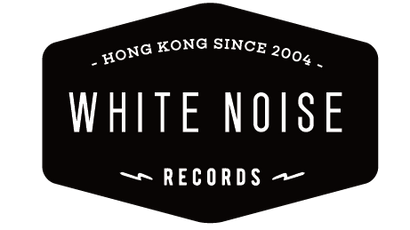More about the world has changed than not in the decade since dance production dyad Frank & Tony released their last full-length record, 2014’s You Go Girl. Despite, or perhaps in spite of, this shifting landscape, house music has managed to stay fundamentally reliable (either a bug or its greatest feature, depending on who you ask). Where previously, Frank & Tony have been celebrated for their contemplative, studious approach to the genre, with 2024’s Ethos, the Brooklyn/Biarritz-based duo return amidst metastatic cultural upheaval to prove out those scholarly credentials — with an album that serves to remind listeners why dancefloors and liberatory politics consistently share the language of movements and revolutions.
"House music has always been an expression of political desire as it often was the only safe space for communities to come together in ways that society at large disallowed,” Harris enthuses. “The same energy in the ‘90s could be found in parts of the (punk hardcore scene). Countercultures exist to create temporary autonomous zones of desire outside of dominant narratives that are roadblocks to creation. We have always been inspired by these countercultural movements and the Frank & Tony project is deeply influenced by it."
Though the project originates from the relationship between house legends Francis Harris and Anthony Collins, the titular Frank & Tony were born of a fictional, happenstance meeting inspired by Harris’s experiences in the more liminal, amorphous dance and punk scenes of the late ‘90s/early 2000s (as exemplified in the early works of photographer Anouk Schneider, whose photographs feature on the duo’s first releases). In a world beyond dialectic, where bodies are simultaneously revered and decentered, Frank & Tony connect for one night on an imaginary dancefloor, vowing to make work together in the future; however, having exchanged no information, and with classic club kid garb obscuring any common identifying characteristics, they turn to the internet in hopes of reconnecting for a collaboration.
This origin myth hones in on the crucial history of the dancefloor as a stage whereupon individuals, regardless of background, enact political and socioeconomic desire to scale, highlighting such locations as the tertiary factor present in intimate relationships of all kinds, brought about when two individuals unite and produce that mysterious third thing that was never really possible without blurring the lines of identity so that collaborative creation can happen.
In practice, it sounds like the record needed by fans of the genre, full of the lightness and space in rooms full of fellow revelators. “We’re only able to make house music because of the vast legacy of producers from New York, Detroit and Chicago who laid the foundation for what we do today,” Collins divulges. “In many ways it can never really live up to that legacy as our art is born out of privilege rather than necessity to create spaces of political desire in the face of marginalization. So what does this mean? We take that legacy very seriously and we want our stamp on this history to resonate with current and future generations as a bridge to the real history behind it."
Undoubtedly, Ethos is tremendously influenced by the multitude of projects originating from, and supported by, the duo and their label in the decade since YGG – releasing records from a vast diversity of artists (including Nadia Khan, Gry, Villete, Darand Land, Alex Albrecht, Dj Sprinkles and CCL), and Harris becoming curatorial voice of Brooklyn’s premiere venue for audiophiles, Public Records, where he continues to amplify work across a global diaspora (and where the duo maintain a residency of wide praise).
It is this bright energy and focus on the necessity of community and relationships that animates the aptly-titled Ethos. If past Frank & Tony releases have been lauded as ‘a coloring book in which someone has exclusively drawn inside the lines… with extreme precision,’ Ethos deviates by inviting friends in for a game of exquisite corpse. From singer and pianist Eliana Glass, whose androgynous, double-reeded voice freestyles across album opener ‘Olympia,’ to distinct track features from fellow house masterminds DaRand Land and DJ Aakmael, over half of the album’s nine tracks highlight artists in the larger Scissor & Thread circle.
It is these tracks that belie the concerns held by critics of electronic music; they are sticky with fingerprints and other mile markers of human touch, the result of exultant reconnections after long nights searching parties for the perfect collaborator you met just once, or the joy of reconvening after a decade of relative discretion and quietude. “Here discretion is not in the simple refusal to put forward confidences,” writes French philosopher Maurice Blanchot in the fragment excerpted within Ethos’s liner notes, “but it is the interval, the pure interval that, from me to this other who is a friend, measures all that is between us, [...] which, far from preventing all communication, relates us to one another in the difference and sometimes the silence of speech.”




